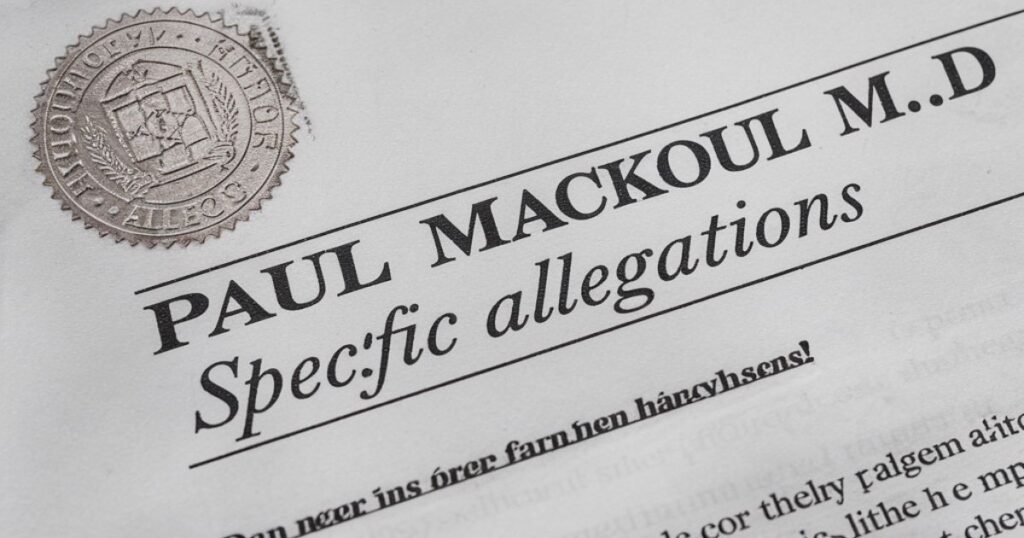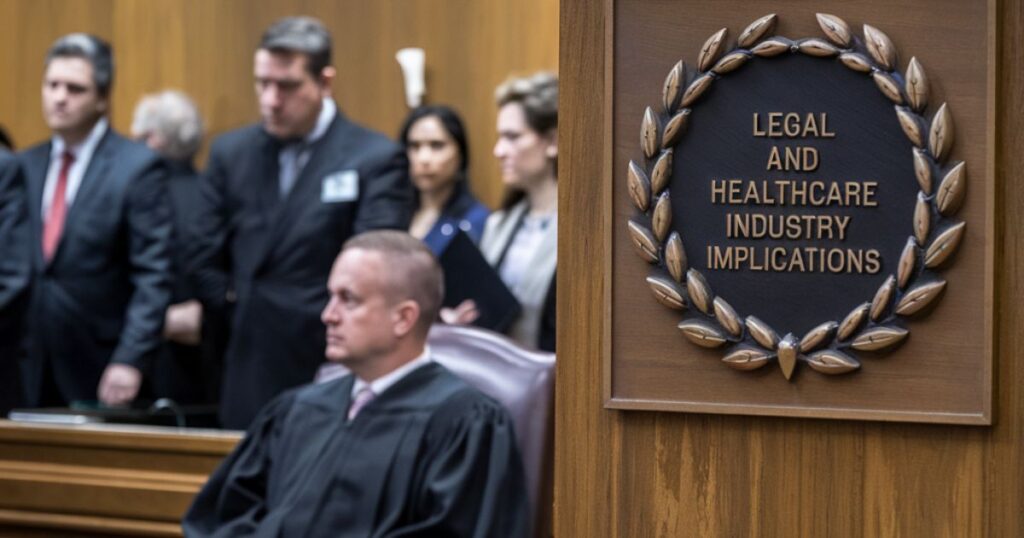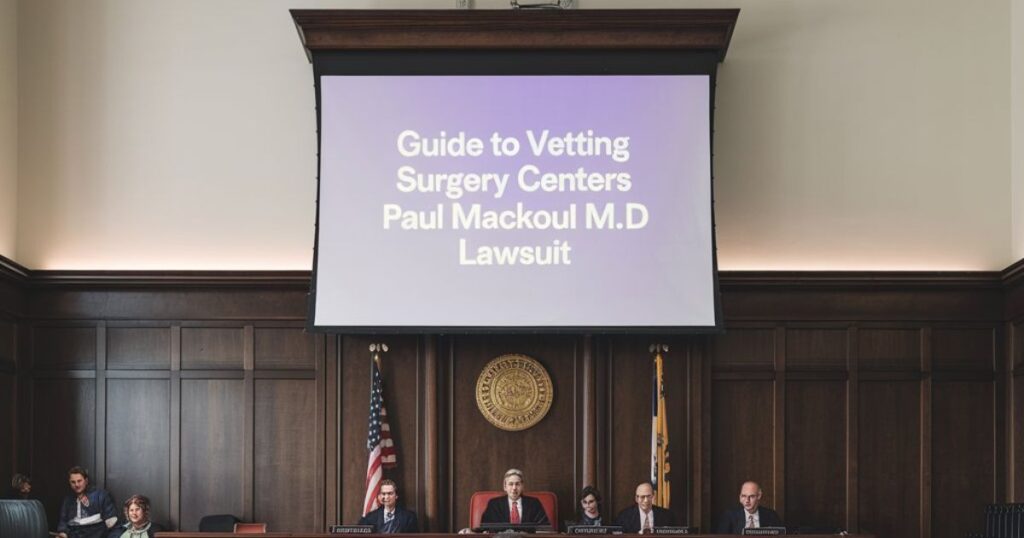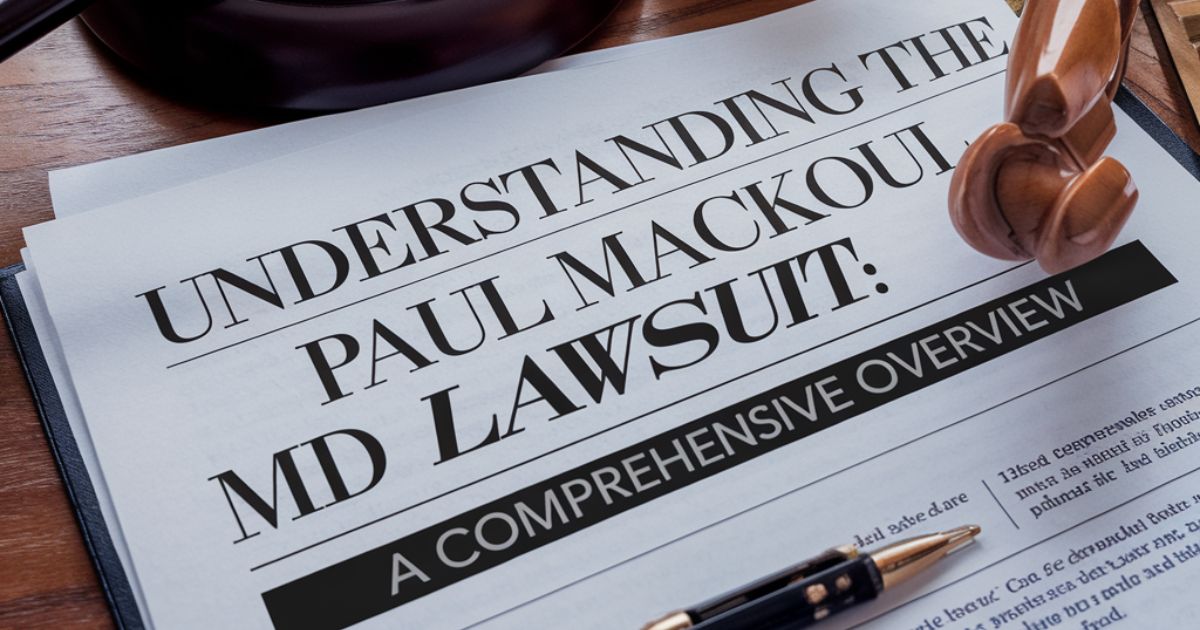In an unprecedented development within the medical community, the lawsuit against Dr. Paul Mackoul has emerged as a pivotal case that’s reshaping conversations about medical accountability and patient safety.
This comprehensive analysis explores the intricate details of the case, its implications for healthcare practices, and the lasting impact on both medical professionals and patients seeking surgical care.
Background of the Case
The controversy surrounding Dr. Paul Mackoul traces back to 2001, marking the beginning of a complex legal journey that would eventually reshape medical oversight practices.
Initially celebrated for his innovative approaches to minimally invasive procedures, Dr. Mackoul’s professional trajectory took a significant turn when questions about his surgical practices began to surface.
His private surgery center, operated in partnership with his wife, became the focal point of mounting concerns as multiple instances of questionable outcomes emerged.
The gradual loss of hospital privileges served as an early indicator of the professional challenges that would follow, reflecting growing apprehension within the medical community about his surgical approaches and patient care standards.
The Allegations
The cornerstone of the legal proceedings centers on a particularly tragic case from 2015, involving a uterine cancer patient whose procedure resulted in fatal complications.
This incident, despite Dr. Mackoul’s certification in cancer surgery, brought to light serious questions about surgical judgment and technical competence.
The case opened the floodgates for additional scrutiny, revealing what plaintiffs’ attorneys describe as a troubling pattern of surgical decisions and outcomes.
The allegations suggest that despite his recognized expertise in minimally invasive procedures, there were significant gaps between standard medical protocols and actual practice methods employed in his surgical center.
These discrepancies have become central to the ongoing legal proceedings and subsequent investigations into his medical practice.
Specific Allegations Include

The scope of legal complaints against Dr. Mackoul reveals a complex web of serious concerns. Beyond basic medical negligence, plaintiffs have brought forward detailed accounts of procedural irregularities and questionable decision-making processes.
The allegations encompass serious breaches in surgical protocols, including instances where proper informed consent procedures were allegedly bypassed.
Many cases highlight severe post-operative complications that plaintiffs argue could have been prevented with proper surgical technique and attention to established medical protocols.
The emotional toll on patients and their families has been particularly significant, with many reporting lasting psychological impacts from their experiences. Documentation shows patterns of surgical complications that allegedly exceeded normal risk parameters for similar procedures.
The legal complaints against Dr. Mackoul encompass multiple serious charges:
- Medical negligence in surgical procedures
- Improper diagnostic approaches
- Significant surgical errors during operations
- Substandard post-operative care
- Failure to obtain proper informed consent
- Cases involving severe emotional distress
Legal Proceedings and Developments
The current legal landscape surrounding Dr. Mackoul’s case is expansive and multifaceted, with implications reaching across multiple jurisdictions. Here’s a comprehensive overview of the legal situation:
| Legal Aspect | Details | Current Status |
| Active Lawsuits | 42 cases | Ongoing |
| Jurisdictions | Multiple states | Pending |
| Primary Claims | Surgical negligence | Under review |
| Evidence Type | Medical records | In analysis |
| Expert Testimony | Multiple specialists | Scheduled |
Impact on Dr. Mackoul’s Career and Reputation
The professional ramifications of these allegations have fundamentally altered Dr. Mackoul’s standing in the medical community. What was once a respected surgical practice has faced intense scrutiny, leading to significant changes in his professional relationships and practice capabilities.
The erosion of patient trust has created lasting impacts on his ability to maintain the kind of medical practice he once enjoyed.
The ripple effects have extended beyond his immediate practice, influencing relationships with medical institutions and professional organizations across the healthcare spectrum. This case demonstrates how quickly decades of professional achievement can be overshadowed by serious allegations of medical misconduct.
Legal and Healthcare Industry Implications

The ripple effects of this case extend far beyond individual medical practices. Healthcare facilities nationwide have begun implementing more rigorous oversight mechanisms for surgical procedures.
The case has prompted a thorough examination of how private surgical centers operate and are monitored. Medical boards across multiple states have strengthened their review processes for surgical privileges and certification maintenance.
The healthcare industry has witnessed a paradigm shift in how it approaches quality assurance, particularly in outpatient surgical settings. These changes reflect a growing recognition that patient safety must take precedence over operational efficiency or financial considerations.
Potential Legal Outcomes
The potential ramifications of this case continue to evolve, with several possible outcomes that could reshape medical practice standards. The likelihood of substantial financial settlements remains high, potentially setting new precedents for similar cases.
Beyond monetary compensation, the case may result in significant changes to medical licensing procedures and oversight mechanisms. Industry experts anticipate that this case could lead to:
- Enhanced requirements for maintaining surgical privileges
- Stricter protocols for reporting surgical outcomes
- New guidelines for patient communication and consent
- Reformed standards for surgical center accreditation
- Increased oversight of independent surgical facilities
Patient Safety and Medical Ethics
This case has catalyzed crucial discussions about medical ethics and patient protection. The medical community has been forced to confront fundamental questions about the balance between surgical innovation and patient safety.
The emphasis on comprehensive informed consent has never been more pronounced, with healthcare providers implementing more thorough documentation processes.
Medical institutions are reassessing their approaches to surgical credentialing and monitoring outcomes. The case underscores the critical importance of maintaining robust safety protocols while advancing medical techniques and procedures.
Also Read: Blind Frog Ranch Lawsuit Update 2024: Navigating Legal Entanglements
Enhancing Medical Practices
In direct response to lessons learned from this case, the medical community has initiated substantial improvements in practice standards. Healthcare facilities are implementing more rigorous quality assurance measures, including enhanced peer review processes and outcome tracking systems.
The focus has shifted toward creating more transparent communication channels between medical providers and patients. These developments represent a significant evolution in how medical practices approach patient safety and professional accountability.
In response to this case, the medical community has implemented several improvements:
- Enhanced compliance standards
- Stricter reporting requirements
- Improved patient communication protocols
- Advanced safety measures
- Regular surgical outcome reviews
Guide to Vetting Surgery Centers

For patients contemplating surgical procedures, the importance of thorough research cannot be overstated. When evaluating a surgical facility, patients should consider multiple factors including:
The facility’s accreditation status with recognized organizations like the Joint Commission The surgeon’s board certification and specific surgical experience The center’s emergency protocols and hospital transfer agreements Patient outcome data and satisfaction metrics The availability of comprehensive post-operative care
For patients seeking surgical care, here are essential steps for evaluation:
- Verify accreditation status with recognized organizations
- Research surgeon credentials thoroughly
- Review patient testimonials and outcomes
- Check for hospital affiliations
- Understand emergency protocols
FAQ’s
What distinguishes this case from other medical malpractice lawsuits?
The scale of allegations, spanning multiple states and involving numerous similar complaints, sets this case apart from typical malpractice suits. The systematic nature of the alleged issues has sparked broader industry reforms.
How has this case influenced patient safety protocols?
The case has led to enhanced safety measures across surgical centers, including stricter accreditation requirements and more thorough patient screening processes.
What role do medical boards play in preventing similar situations?
Medical boards have strengthened their oversight mechanisms, implementing more frequent reviews of surgical privileges and establishing clearer guidelines for maintaining professional credentials.
How can patients protect themselves when seeking surgical care?
Patients should thoroughly research their surgeon’s credentials, verify facility accreditation, review outcome data, and ensure clear communication about surgical risks and alternatives.
What lasting changes might this case bring to the medical industry?
The case is likely to result in permanent changes to surgical center oversight, patient consent procedures, and professional accountability measures in healthcare.
How has the medical community responded to these allegations?
The response has included enhanced peer review processes, stricter credentialing requirements, and improved patient safety protocols across surgical facilities.
Conclusion
The Paul Mackoul MD lawsuit stands as a watershed moment in medical accountability and patient advocacy. Its implications continue to reverberate throughout the healthcare system, influencing everything from surgical protocols to patient communication standards.
The case serves as a powerful reminder that maintaining high standards in medical practice isn’t just about following regulations – it’s about ensuring patient safety and upholding the fundamental principles of medical ethics. As the legal proceedings continue to unfold, their impact will likely shape medical practice standards for years to come.
Explore the latest news and insights from Echozynth and beyond at Echozynth.com

Kiara Arushi is the dedicated admin of this personal website, which serves as a comprehensive hub for general information across various topics. With a keen eye for detail and a passion for knowledge sharing, Kiara curates content that is both informative and engaging, catering to a diverse audience.
Her commitment to providing accurate and up-to-date information ensures that visitors find valuable insights and practical tips in every post. Whether you’re seeking the latest trends or timeless advice, Kiara’s expertise makes this site a trusted resource for all.


